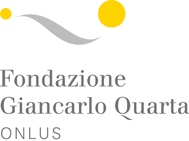Giornale Italiano di Farmacoeconomia e Farmacoutilizzazione, dicembre 2014, 6(4):17-22
PSICOLOGIA, NEUROBIOLOGIA, ETICA DELL’EFFETTO PLACEBO E DELLA RELAZIONE MEDICO-PAZIENTE
Psychology, neurobiology, ethics of the placebo effects and of the doctor-patient relationship
Elisa Frisaldi1, Lucia Giudetti2, Alan Pampallona2, Fabrizio Benedetti1
1 Dipartimento di Neuroscienze dell’Università di Torino e Istituto Nazionale di Neuroscienze
2 Fondazione Giancarlo Quarta Onlus, Milano
Abstract
Placebo and nocebo effects have recently emerged as an interesting model to understand some of the intricate underpinnings of the mind-body interaction. A variety of psychological mechanisms, such as expectation, conditioning, reward, anxiety modulation, have been identified and a number of neurochemical networks characterized across different conditions, such as pain and Parkinson’s Disease.
What has emerged from the recent insights into the neurobiology of placebo and nocebo effects is that the psychosocial context around the patient and the therapy, which represents the ritual of the therapeutic act, may change the biochemistry and the neuronal circuitry of the patient’s brain. Furthermore, the mechanisms activated by placebos and nocebos have been found to be the same as those activated by drugs, which suggests a cognitive/affective interference with drug action.
The doctor-patient relationship plays a crucial role within the ritual of the therapeutic act. Investigating the doctor-patient relationship by using a physiological and neuroscientific approach makes the doctors more aware about their influence on both patients’ behaviors and patients’ ability to react against the disease, with profound ethical, clinical and pharmacoeconomical implications.
Per leggere l’articolo completo:
http://www.sefap.it/web/upload/GIFF4_2014_02_Frisaldi_ras.pdf
